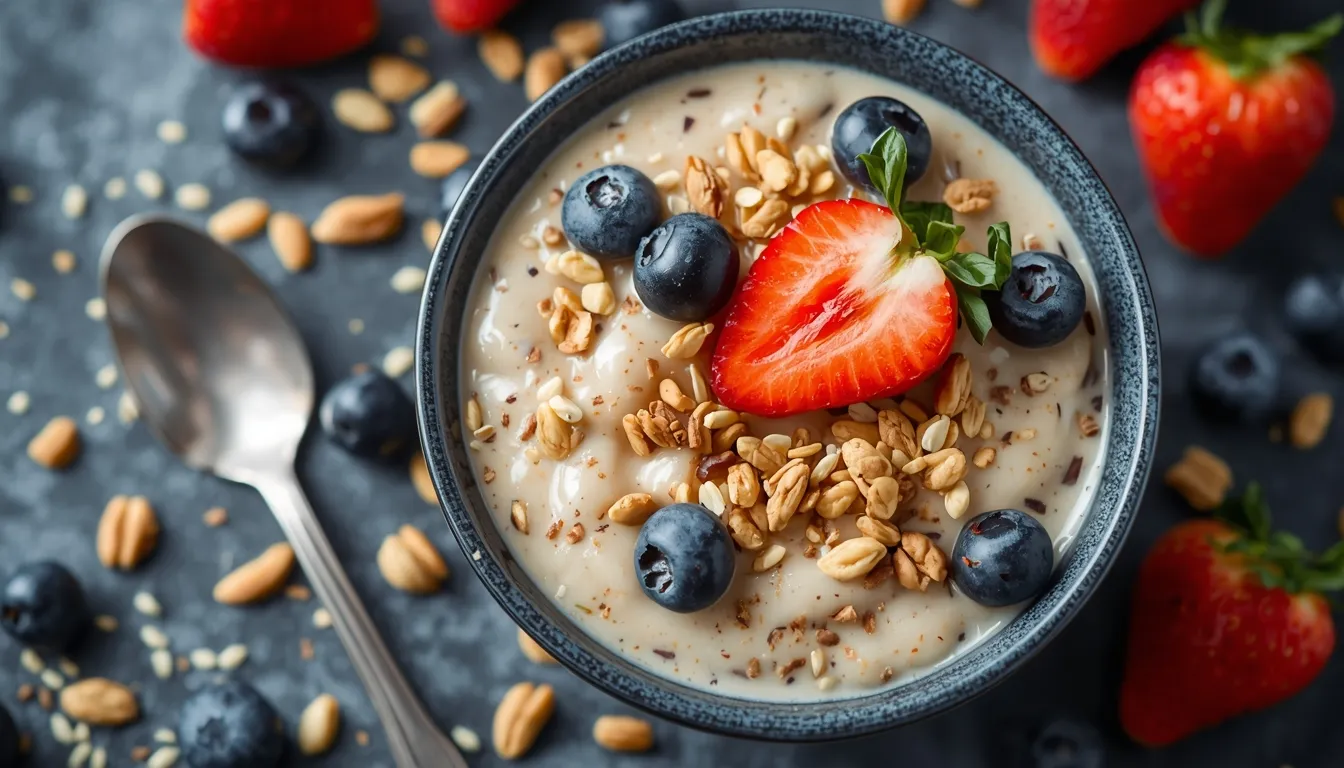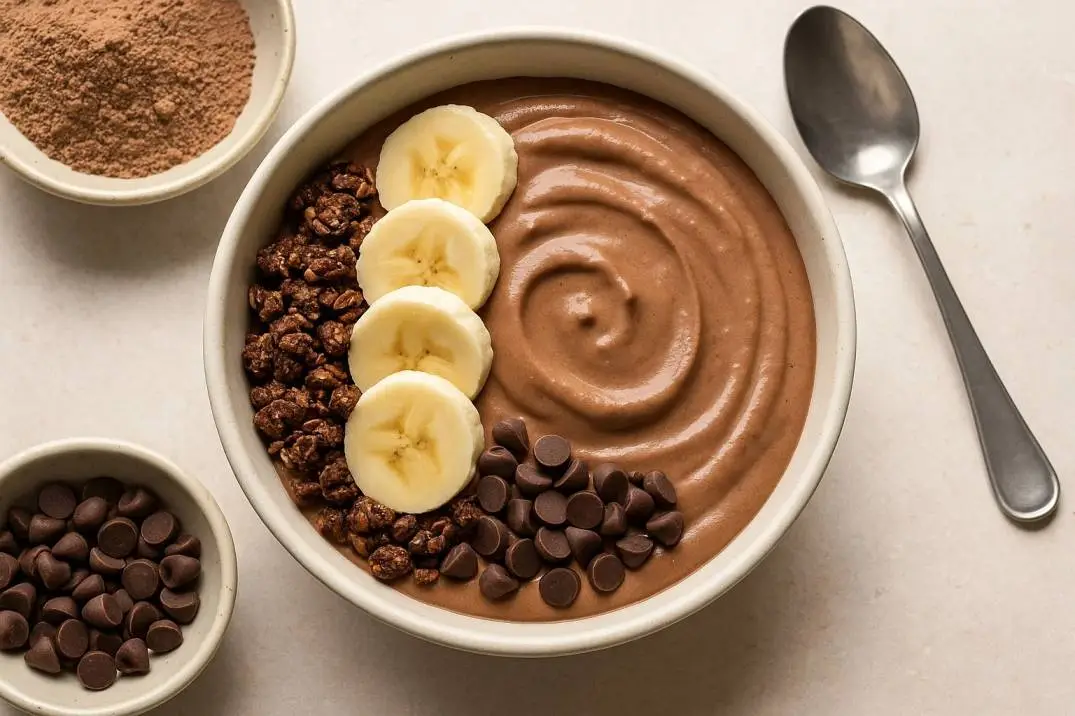
In today’s fast-paced world, it’s easy to overlook the importance of breakfast. However, starting your day with a healthy meal can provide you with the energy and nutrients you need to kickstart your morning. In this ultimate guide, we will explore a variety of delicious and nutritious high-calorie breakfast ideas that will fuel your body and set you up for a productive day ahead breakfast is often called the most important meal during the day.
High-calorie Breakfast Ideas To Help You Lose Weight
www.loss.com
Here are some delicious high-calorie breakfast ideas that can support your weight loss journey:
1. Avocado Toast with Poached Eggs
Start your day with a satisfying and nutrient-packed avocado toast topped with poached eggs. Avocados are rich in healthy monounsaturated fats that promote satiety, while poached eggs provide a good dose of protein. Choose whole-grain bread to add fiber and complex carbohydrates to the mix.
2. Nut Butter and Banana Smoothie
Blend together a smoothie with almond or peanut butter, banana, Greek yogurt, and a splash of milk. Nut butter is calorie-dense and rich in protein and healthy fats, making this smoothie a filling option that keeps cravings at bay
3. Breakfast Burrito with Sweet Potatoes and Black Beans
Fill a whole-grain tortilla with scrambled eggs, roasted sweet potatoes, black beans, and a sprinkle of cheese. Sweet potatoes are nutrient-dense and packed with fiber, while black beans provide plant-based protein to support your weight loss goals.
4. Greek Yogurt Parfait with Nuts and Berries
Layer Greek yogurt with a variety of nuts, seeds, and fresh berries. Greek yogurt is high in protein, calcium, and probiotics, which promote gut health and help with weight management. The nuts and berries add healthy fats, antioxidants, and additional nutrients.
5. Quinoa Breakfast Bowl with Tofu and Greens
Create a breakfast bowl with cooked quinoa, sautéed tofu, and a mix of leafy greens. Quinoa is an all-round protein and an excellent source of complex carbohydrates.
The Best Low-calorie Breakfast Recipes For Weight Loss
www.minerals.com
Here are some of the best low-calorie breakfast recipes to kickstart your journey:
1. Veggie Egg White Omelet
Whisk together egg whites with a variety of chopped vegetables such as spinach, bell peppers, and mushrooms. Cook the mixture in a non-stick pan and fold it into a fluffy omelet. This low-calorie breakfast is packed with protein and fiber while being low in fat.
2. Overnight Chia Pudding
Combine chia seeds with your choice of milk (such as almond or coconut milk) and a touch of sweeteners like stevia or honey. Let the mixture sit overnight in the refrigerator, and in the morning, you’ll have a creamy and satisfying chia pudding. Top it with fresh berries for added flavor and nutrients.
3. Greek Yogurt with Berries and Almonds
Choose plain, non-fat Greek yogurt as the base for this low-calorie breakfast. Top it with a handful of fresh berries and a sprinkle of sliced almonds. Greek yogurt is high in protein and probiotics, while berries and almonds add antioxidants and healthy fats.
4. Whole Grain Toast with Smashed Avocado
Broil a slice of whole grain bread and garnish with avocado puree. Sprinkle a pinch of salt and pepper, and add a squeeze of fresh lemon juice for extra flavor. This simple and satisfying breakfast is low in calories and provides healthy fats and fiber.
5. Berry Spinach Smoothie
Mix a handful of mixed spinach berries, a scoop of protein powder, and a pinch of almond milk. this refreshing and low-calorie smoothie is packed with vitamins, minerals, and antioxidants.
Read Also: The Best Taco Bell Breakfast Items: A Comprehensive Guide
Exploring The Benefits Of A Protein Breakfast For Weight Loss
www.loss.com
Let’s explore the benefits of a protein breakfast and discover some delicious options:
1. Muscle Development and Repair
Protein is the building block of muscles, and consuming an adequate amount at breakfast helps support muscle development and repair. By including protein-rich foods in your morning meal, such as eggs, Greek yogurt, cottage cheese, or protein shakes.
2. Increased Satiety and Reduced Cravings
Protein has been shown to promote satiety, helping you feel full and satisfied for longer periods. This can be especially beneficial for individuals looking to gain weight, as it helps prevent excessive snacking and overeating throughout the day.
3. Boosted Metabolism
Protein has a higher heat effect than carbohydrates and fats, which means your body burns more calories during digestion and the process of absorption. This increased metabolic rate can aid in weight gain by supporting a higher calorie intake.
4. Nutrient-Dense Choices
A protein breakfast provides an opportunity to incorporate other nutrient-dense foods into your meal. By combining protein sources with whole grains, fruits, vegetables, and healthy fats, you can create a well-balanced and nourishing breakfast.
5. Energy and Stamina
Protein-rich breakfasts provide a sustained release of energy, allowing you to start your day with vitality and stamina. This can be particularly beneficial for individuals engaged in physical activities or those seeking to enhance their overall energy levels.
Exploring The Link Between High-calorie Breakfast Foos And Weight Gain
Let’s explore the relationship between high-calorie breakfast foods and weight gain to make informed choices:
1. Caloric Surplus and Weight Gain
Weight gain happens when you always eat more calories than your body needs. High-calorie breakfast foods, if not balanced with the overall calorie intake for the day, can contribute to a caloric surplus and subsequent weight gain. It’s crucial to be mindful of portion sizes and the total calorie content of your breakfast to maintain a healthy balance.
2. Nutrient Density vs. Calorie Density
While some high-calorie breakfast foods may be energy-dense, they may not always provide the necessary nutrients your body needs. It’s important to focus on nutrient-dense options that offer a balance of macronutrients (protein, carbohydrates, and fats) as well as essential vitamins and minerals. Opt for whole foods such as fruits, vegetables, lean proteins, whole grains, and healthy fats to ensure you’re getting the nutrients your body requires.
3. Impact on Blood Sugar Levels
Consuming high-calorie breakfast foods that are high in refined sugars or simple carbohydrates can lead to rapid spikes in blood sugar levels, followed by crashes. This rollercoaster effect can leave you feeling hungry, fatigued, and prone to cravings, which may result in overeating and weight gain. provide sustained energy by including complex carbohydrates, fiber, and protein.
4. Portion Control and Mindful Eating
Controlling portion sizes and practicing mindful eating are key factors in managing weight gain. Even if you choose high-calorie breakfast foods, being aware of your portion sizes and eating slowly can help you gauge satiety and prevent overconsumption.
5. Balancing High-Calorie Choices
It’s possible to enjoy high-calorie breakfast foods in moderation as part of a balanced diet. If you have a preference for such options, consider incorporating them occasionally and balancing them with lower-calorie choices throughout the day.
By Anushikha Bhatnagar



